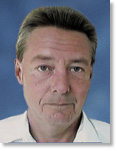|
[ Go to April 1997 Table of Contents ]
Is There No Justice For Software Makers? Something's wrong with the way our legal system decides computer cases.
Last October, a jury awarded a part-time programming consultant the entire net worth of our company for 460 lines of C code. Should this decision stand, the entire software industry could feel the effects. The free exchange of ideas will be severely stifled and the development process significantly retarded. Our case centered around four software functions. We hired a consultant-who was interested in having us resell his marketing software-to automate our prospect sales system. He worked approximately 20 days, and we paid him $8,500. Three and a half years later, the programmer sued us for copyright infringement and trade secret misappropriation. After $1 million in legal fees and a jury award for $5 million, we're still in the dark as to what those trade secrets are. Through four years of pretrial pleadings and maneuverings, the plaintiff was never required to identify the trade secrets in plain English. The plaintiff's software performed 23 marketing functions; our software does four. Yet he was allowed to present exhibit after exhibit of only those four functions, which made it appear as if the two products were identical in every way. Features and functions should not be considered in trade secret cases because they're duplicated in many applications. For example, the 25 most frequently used features are identical in virtually every word processor. Exhibits listing only similarities would lead a layperson to assume all word processors are identical, and must have been copied from one another. A Luddite judge Two years into the pretrial process, our case was reassigned to a newly appointed federal judge who expressed his dislike of computers and his ignorance of their operation. Judges have the power to appoint experts to help them make reliable judgments as to whether copyright infringement or trade secret misappropriation has occurred. In our case, however, the court's expert was appointed solely to evaluate the copyright claim, and on that claim we prevailed. On the equally technical and difficult question of trade secret misappropriation, the court refused to allow its expert to render an opinion, stating he was appointed only for the preliminary process. I believe this refusal made the difference, and that the jury-incapable of understanding the programming languages-based its decision on the emotional issue of the little guy vs. the multimillion-dollar corporation. Being accused of trade secret misappropriation without having the trade secret specified is the equivalent of being accused of a crime without being told what the crime is. It's virtually impossible to mount a defense. And placing the decision in the hands of eight people who can't read computer code is like having English-speaking people decide a copyright claim on a book written in Chinese. This case should never have gone to trial. Somewhere early in the legal process, the plaintiff should have been forced to identify the trade secrets. And a group of court-appointed software experts should decide whether they truly are trade secrets. Trade secrets must have at least two things in common: They must be unique, and they must not be common knowledge in the programming or end-user community. In our case, nothing in the plaintiff's program was identified as having these qualities. I invite you to visit our Web site (http://www.appliedsystems.com.) to review the two pieces of code yourself. We intend to appeal this decision, but if our appeal fails, programmers will be free to make allegations of trade secret misappropriation without the burden of specifically identifying those secrets, and every software developer in the country will be at risk. Any conversations dealing with new ideas will leave the parties in jeopardy. Frivolous suits will be filed to take advantage of the quick buck made available through this decision. Any programmer who shows his or her product to a competitor can claim the competitor stole his trade secrets based on functional similarity. Discussions of ideas will only be risk-free if detailed legal documents spelling out the rights and obligations of all parties involved are executed prior to even preliminary talks. And that's bad news for all of us. Bob Eustace is chairman of Applied Systems, a University Park, Ill.-based software developer. Contact Bob in the "Dialog Box" topic of WINDOWS Magazine's areas on America Online and CompuServe, or care of the editor at the e-mail addresses here. Opinions expressed here do not necessarily reflect those held by WINDOWS Magazine.
|
